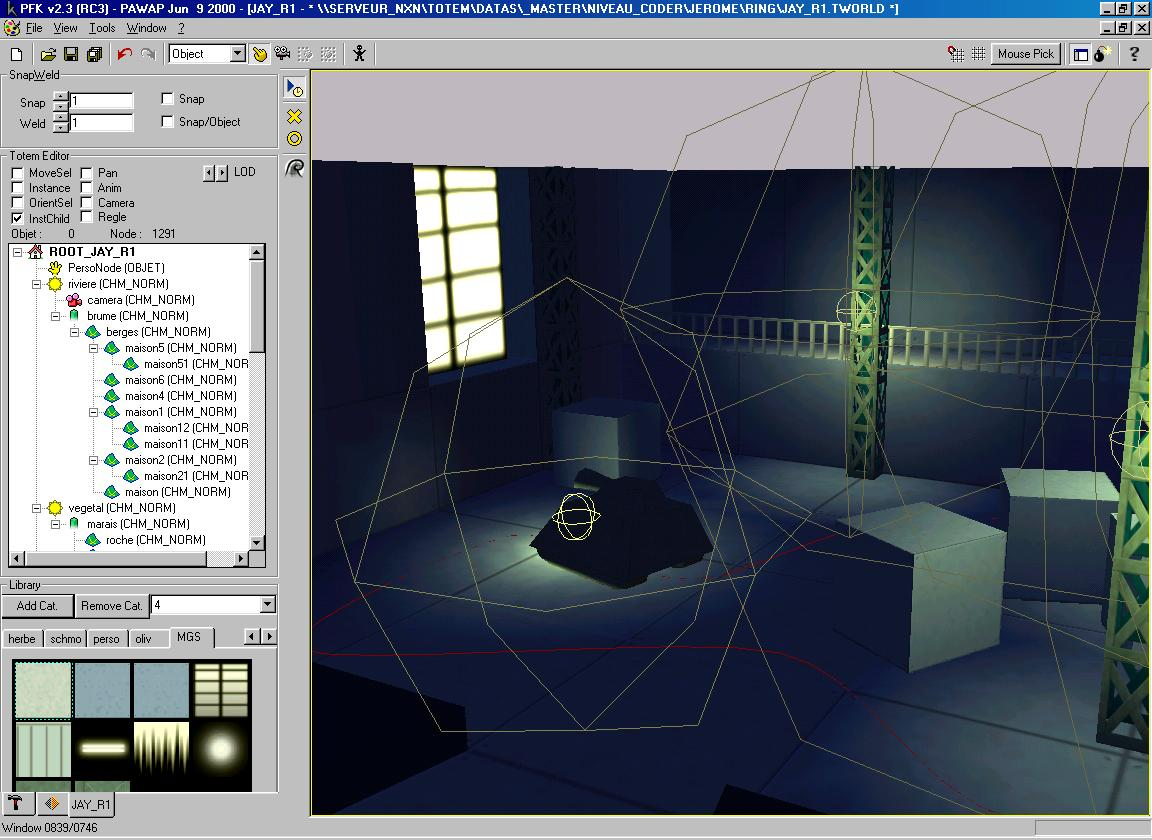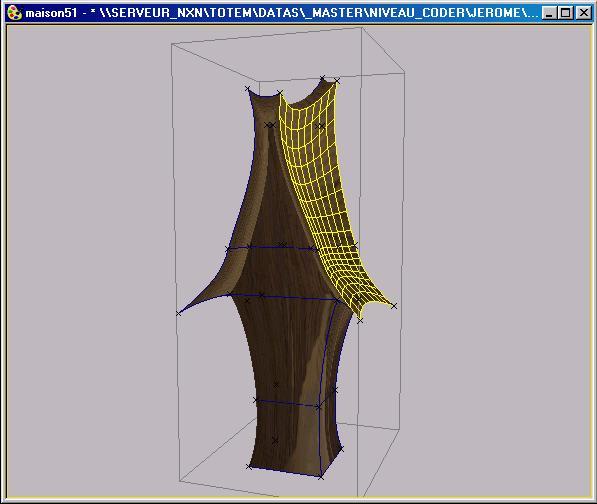-
Notifications
You must be signed in to change notification settings - Fork 1
History of ROTFD and Kalisto
https://www.youtube.com/watch?v=xCECvC3iaVo
I highly recommend this video; it's very entertaining and contains a lot of history about ROTFD's development. It also includes intverviews of the original developers.
here are some screenshots of the TotemTech engine, ripped from the Wayback Machine.

This screenshot is of the TotemTech editor. From the title bar, you can tell that this is a build from June 9th, 2000. There is a mixture of both english and french strewn about. You can see a hierarchy of nodes on the left, showing how NODEs would have been laid out in the editor. There is a single root node, which has two visible LIGHT children, 'riviere' (river) and 'vegetal' (vegetation), as well as another child of unknown type called 'PersoNode', which is probably the player.
The 'riviere' node has a CAMERA child named 'camera', as well as an HFOG child named 'brume' (mist). The 'brume' node has several SURFACE children, including 'berges' (river embankment), and several 'maison' (house) nodes. The 'vegetal' node also has an HFOG child named 'marais' (swamp). The 'marais' node has a SURFACE child named 'roche' (rock).
On the bottom left, you can also see some kind of texture library, which presumably allows the developer to select textures and apply them to different objects. There is also a visual editor on the right, which takes up the majority of the screen.

Here is a screenshot of the SURFACE editor. You can see that SURFACEs aren't made of polygons, but are instead Bezier patches. Interestingly, this screenshot shows the SURFACE for 'maison51', which appears in the node tree in the previous screenshot.

Unfortunately, this screenshot is too small to discern, and I couldn't find a better quality image. However, it does show an overhead view of a level.